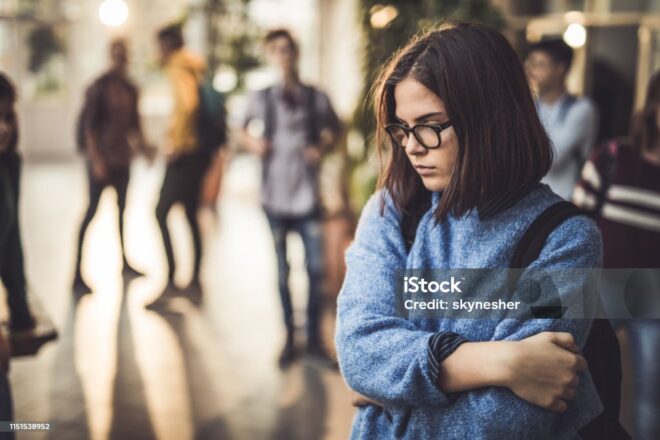
Peer pressure resembles what could either make or break a teen’s future. In most cases, this would result in a negative outcome, although positive outcomes are possible. Friends are usually a big factor in how teens make decisions. Parents may ask their kids, “What has gotten into you lately?” or “Since when did you start disobeying my rules?”. Have you heard your parents or guardians say this before? Well, the answer to those questions may be from the influence that teens are developing from peer pressure.
The peer pressure that teens go through from their friends has many mental health effects if it gets to a certain point. These include stress, anxiety, and/or depression. Those disorders lead to teens performing poorly in their academics, distancing themselves from family members, or even using harmful coping mechanisms. When teens cannot live up to their peers’ expectations, they can feel inadequate and develop low self-esteem.
Retaj AlBadani stated, “Teens want to look good in front of others, maybe to keep their reputation up or create a reputation for themselves.” Retaj is aware of most teens’ eagerness for approval. Impressing others can be a significant reason for a teen’s attempt to accomplish something. Their reputation can be built off good things seen from them, which makes them ache for recognition. The bad thing is that the influence can affect a teen’s future. They could lose scholarships and once-in-a-lifetime opportunities because of the mistakes they’ve made in the past. A digital footprint is a real thing that teens have to perceive.
Teens experience many behavioral changes. People’s actions influence others and make them imitate whatever they’re doing. This turns into them engaging in risky activities. Some activities could be vaping, stealing, and even bullying. These lead to serious consequences and hurtful to others’ feelings. The thing is, some friends don’t even mean to put pressure on others. Sometimes, they mean well and do not intend any harm. Amin Odeh mentioned, “Some people just want to include their friends in activities so they don’t feel like the only one participating.”
Amin recognizes how the friends could just not want to feel left out when doing activities by themselves. Teens have been acting differently toward their parents and behaving differently in public. Parents aren’t even familiar with their children anymore based on how they’ve been disrespecting them. Kids could be sneaking out behind their parents’ backs, skipping school, or even swearing in their faces.
Teens rely on certain coping mechanisms to manage peer pressure. Instead of using mechanisms to heal themselves, they just continue to harm their health. They could start drinking lots of caffeine to deal with the lack of sleep they may get, vaping or smoking, and isolating themselves from their friends and family. Unfortunately, a frequent method is self-harm. Nobody should have to commit to self-harm to make themselves feel better. Something that teens often get pressured into is vaping. Once they get used to vaping, they do it more and more till they conclude that it relieves their stress, even though all the nicotine does is harm them.
To conclude, friends impact many kids’ decisions and what they think nowadays. Their negative thinking and actions easily reflect how others’ futures build up from a bad path being taken. Rania Bazzi, a former counselor, stated, “Teens don’t realize how much these mechanisms are affecting them.” Rania explains that teens are unaware and inattentive of what they do to supposedly help them. The teens aren’t the only people who are affected by this; close friends and family can notice the behavior and potentially feel accountable for their actions. When teens go straight for blaming or letting out all their intrusive thoughts, they can come out as rude and make the other person feel as if they’re the problem. Little do they know, peer pressure is what is getting them.
By: Summer Sahoubah